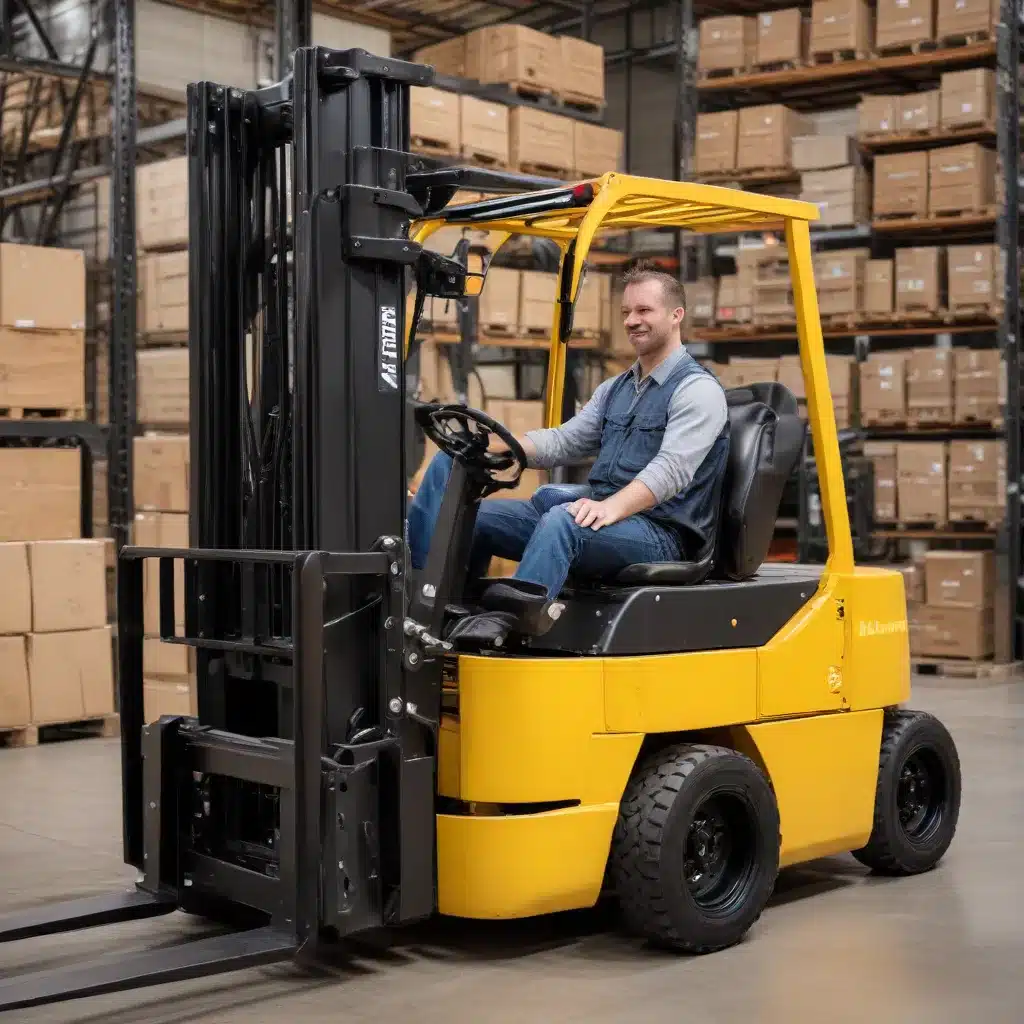
Unlocking Operator Potential Through Tailored Training
As a seasoned industry expert in forklifts, warehousing, and logistics, I’ve seen firsthand the critical role that forklift operator training plays in ensuring workplace safety, efficiency, and productivity. However, a one-size-fits-all approach to training often falls short in addressing the diverse needs and learning styles of forklift operators. To truly unlock the full potential of your workforce, it’s essential to customize forklift operator training programs to cater to individual skill levels and learning preferences.
Assessing Skill Levels and Training Needs
The first step in creating a tailored forklift operator training program is to assess the existing skill levels and training needs of your workforce. This can be achieved through a combination of pre-training assessments, skills evaluations, and discussions with operators to identify any knowledge gaps or areas that require additional focus.
Pre-Training Assessments: Conducting comprehensive pre-training assessments can provide valuable insights into the operators’ current understanding of forklift safety, operation, and maintenance procedures. These assessments can be in the form of written tests, hands-on practical evaluations, or a combination of both, allowing you to gauge each operator’s proficiency level and identify areas that need to be addressed during the training.
Skills Evaluations: Observing operators during their daily tasks can also reveal their strengths, weaknesses, and unique learning styles. By closely monitoring their handling techniques, problem-solving abilities, and decision-making processes, you can tailor the training content and delivery methods to better suit their individual needs.
Operator Feedback: Engaging with your forklift operators and soliciting their input can be a powerful tool in shaping the training program. Encourage open dialogue and encourage operators to share their concerns, challenges, and preferred learning methods. This valuable feedback will enable you to create a training curriculum that resonates with the workforce and addresses their specific needs.
Developing Customized Training Curriculums
Armed with the insights gained from the assessment process, you can now begin to develop a customized forklift operator training curriculum that caters to the diverse skill levels and learning styles within your organization.
Tiered Training Approach
Consider implementing a tiered training approach that allows you to address the varying skill levels of your operators. This may involve:
-
Foundational Training: For new or inexperienced operators, focus on building a strong foundation in forklift safety, operation, and maintenance. Cover essential topics such as pre-operational inspections, load capacity, stability, and maneuvering techniques.
-
Intermediate Training: For operators with some experience, delve deeper into more advanced forklift operation and safety procedures. This may include training on navigating challenging environments, load handling, and emergency response protocols.
-
Advanced Training: For seasoned operators, provide specialized training on the latest forklift technologies, industry best practices, and strategies for optimizing material handling operations. This may include topics such as predictive maintenance, energy-efficient operations, and operator-driven productivity improvements.
By tailoring the training content and depth to the specific needs of each skill level, you can ensure that all operators receive the knowledge and skills necessary to perform their duties safely and efficiently.
Diverse Learning Modalities
Recognizing that individuals have different learning preferences, it’s essential to incorporate a variety of training modalities into your forklift operator training program. This may include:
-
Hands-On Training: Provide ample opportunities for operators to practice their skills on actual forklift equipment, allowing them to apply the knowledge gained in a real-world setting.
-
Classroom-Based Instruction: Complement the hands-on training with interactive classroom sessions that cover theoretical concepts, safety protocols, and regulatory requirements.
-
Multimedia Presentations: Utilize visual aids, such as videos, animations, and 3D simulations, to enhance the learning experience and reinforce key concepts.
-
Gamification: Implement game-based learning elements, such as quizzes, challenges, and leaderboards, to engage operators and make the training more interactive and enjoyable.
-
Mentorship and Coaching: Pair experienced operators with new or struggling trainees to foster a supportive learning environment and facilitate knowledge sharing.
By offering a diverse range of training modalities, you can cater to the various learning styles and preferences of your forklift operators, ensuring that the training content is effectively absorbed and retained.
Continuous Improvement and Ongoing Support
Effective forklift operator training is not a one-time event; it’s an ongoing process that requires continuous improvement and support. Regularly review and update your training programs to ensure they remain relevant and aligned with industry best practices, regulatory changes, and the evolving needs of your organization.
Encourage open communication and feedback channels, allowing operators to share their experiences, challenges, and suggestions for improvement. Gather data on training outcomes, such as safety incident rates, productivity metrics, and operator feedback, to identify areas for enhancement.
Furthermore, provide ongoing support and resources to your forklift operators, such as refresher training sessions, access to training materials, and regular assessments. This will help reinforce the knowledge and skills gained during the initial training, ensuring that operators maintain their proficiency and continue to operate forklifts safely and efficiently.
Conclusion
Customizing forklift operator training programs to meet the diverse skill levels and learning styles of your workforce is a critical step in fostering a safe, productive, and engaged workforce. By implementing a tailored approach that addresses individual needs, you can unlock the full potential of your forklift operators, driving improvements in safety, efficiency, and overall organizational performance.
Remember, investing in comprehensive and customized forklift operator training is not only a best practice but also a strategic imperative in today’s competitive logistics and warehousing landscape. By prioritizing the development of a highly skilled and safety-conscious forklift operator workforce, you can position your organization for long-term success and a reputation for operational excellence.
For more insights and practical tips on forklift reviews, safety guidelines, maintenance, and industry trends, visit Forklift Reviews.

